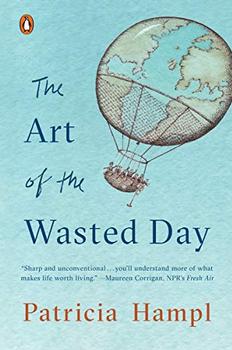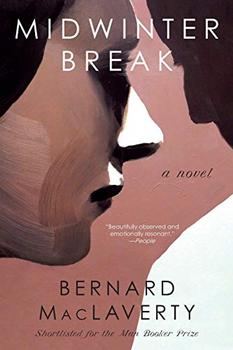Summary | Excerpt | Reviews | Beyond the book | Read-Alikes | Genres & Themes | Author Bio

On Writers and Drinking
by Olivia LaingWhy is it that some of the greatest works of literature have been produced by writers in the grip of alcoholism, an addiction that cost them personal happiness and caused harm to those who loved them?
In The Trip to Echo Spring, Olivia Laing examines the link between creativity and alcohol through the work and lives of six extraordinary men: F. Scott Fitzgerald, Ernest Hemingway, Tennessee Williams, John Berryman, John Cheever, and Raymond Carver.
All six of these writers were alcoholics, and the subject of drinking surfaces in some of their finest work, from Cat on a Hot Tin Roof to A Moveable Feast. Often, they did their drinking together: Hemingway and Fitzgerald ricocheting through the cafés of Paris in the 1920s; Carver and Cheever speeding to the liquor store in Iowa in the icy winter of 1973.
Olivia Laing grew up in an alcoholic family herself. One spring, wanting to make sense of this ferocious, entangling disease, she took a journey across America that plunged her into the heart of these overlapping lives. As she travels from Cheever's New York to Williams's New Orleans, and from Hemingway's Key West to Carver's Port Angeles, she pieces together a topographical map of alcoholism, from the horrors of addiction to the miraculous possibilities of recovery.
Beautiful, captivating, and original, The Trip to Echo Spring strips away the myth of the alcoholic writer to reveal the terrible price creativity can exert.
My affection for this book grew slowly. Laing liberally mingles her present travels, her own past exposure to alcoholism with the lives and writings of the featured writers. This complex layering initially intimidated, and at times, confused me. But as I read, I grew accustomed to the complex rhythm, then became happily absorbed by it. This splintered narrative might not be for every reader; it is ultimately effective, however, in exposing just that same characteristic in the lives - and sometimes written words - of those controlled by drink...continued
Full Review
(606 words)
This review is available to non-members for a limited time. For full access,
become a member today.
(Reviewed by Stacey Brownlie).
Olivia Laing's second book, The Trip to Echo Spring explores the lives of six twentieth century American authors who all coped with alcoholism in their lives and careers. Some information about each of these troubled, talented men:
F. Scott Fitzerald (1896 - 1940)
 Fitzgerald is best known as a novelist who portrayed, and indeed coined the term, the Jazz Age. He also wrote short stories, plays and screenplays. His most famous novel is The Great Gatsby, which was given the modern Hollywood treatment in the 2013 film of the same name. Fitzgerald's drinking problems were fairly well known during his career and may have contributed to some reviewers not taking his work as seriously as he hoped. He died of a heart attack at age 44, eight ...
Fitzgerald is best known as a novelist who portrayed, and indeed coined the term, the Jazz Age. He also wrote short stories, plays and screenplays. His most famous novel is The Great Gatsby, which was given the modern Hollywood treatment in the 2013 film of the same name. Fitzgerald's drinking problems were fairly well known during his career and may have contributed to some reviewers not taking his work as seriously as he hoped. He died of a heart attack at age 44, eight ...
This "beyond the book" feature is available to non-members for a limited time. Join today for full access.

If you liked The Trip to Echo Spring, try these:

by Patricia Hampl
Published 2019
A spirited inquiry into the lost value of leisure and daydream.

by Bernard MacLaverty
Published 2018
For readers of Colm Toíbín, a moving portrait of a marriage in crisis and a couple's search for salvation.
There are two kinds of light - the glow that illuminates, and the glare that obscures.
Click Here to find out who said this, as well as discovering other famous literary quotes!